Alarm bells ringing for change in Turkish politics
(Baonghean) - A surprise occurred in the re-election for the position of Mayor of Istanbul, Türkiye when the ruling Justice and Development Party (AKP) once again suffered a heavy defeat. The opposition candidate, Mr. Ekrem Imamoglu, won convincingly in the re-election.
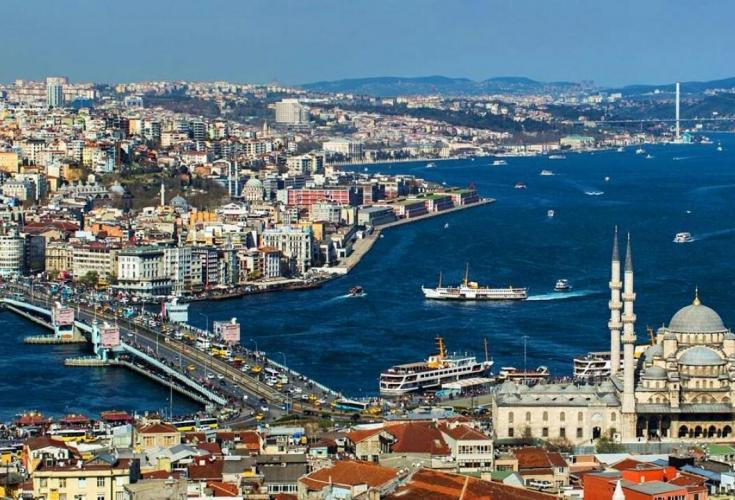 |
| A corner of Istanbul, Türkiye. |
The result energized the opposition, while portending an uncertain future for President Tayyif Erdoğan's ruling party.
Test of public opinion
Three months ago, Mr. Imamoglu won a surprising, narrow victory in the race for mayor of Istanbul, Türkiye’s largest city. However, the result was not recognized by the ruling AKP (led by Mr. Erdoğan) party due to allegations of numerous violations during the election process. The election was re-run, and this time, instead of a narrow victory, the opposition candidate Imamoglu won overwhelmingly, with 54% of the vote, beating AKP candidate Binali Yildrim by about 800,000 votes (the margin in the March election was only 13,000 votes).
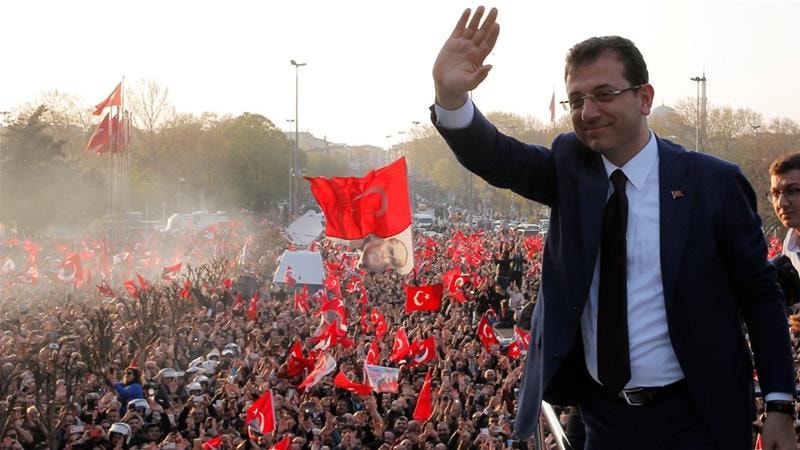 |
| Mr. Ekrem Imamoglu won a resounding victory in the Istanbul mayoral election. Photo: Reuters |
The convincing victory in this election forced the AKP to concede. Thus, after 25 years of holding power in this key urban area, the AKP had to give way for the first time to the opposition Republican People's Party.
Although this is only a local election, it can be said that this event has national importance. Istanbul is a dynamic city with nearly 16 million people, the economic and cultural capital of Türkiye, accounting for one-third of the country's entire economy.
“Whoever controls Istanbul controls Türkiye.”
The strategic significance of this city lies in President Erdoğan’s statement: “Whoever controls Istanbul controls Türkiye.” Therefore, the failure in both elections for the city’s mayor was not only a heavy blow to the ruling AKP Party but also a big “shock” to Mr. Erdoğan himself.
In addition to its location and central role, Istanbul also holds a lot of personal significance for Mr. Erdoğan. This is his hometown and the city where he began his political career. In 1994, Mr. Erdoğan became mayor of Istanbul, a milestone that also served as a “launch pad” that brought him to the pinnacle of power.
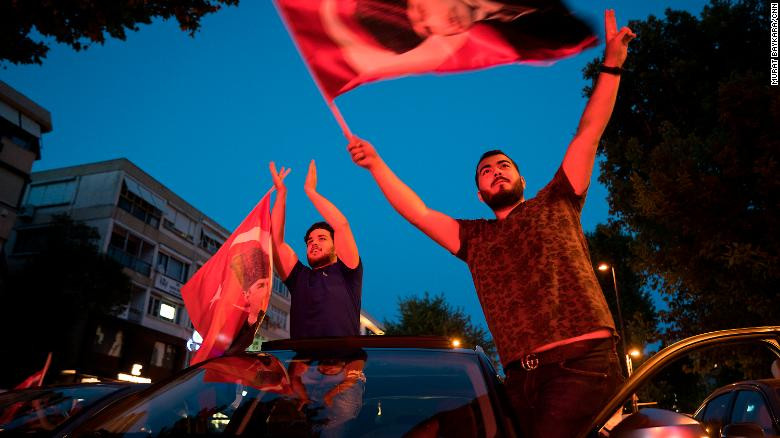 |
| Supporters of Mr. Imamoglu poured into the streets of Istanbul. Photo: CNN |
Local elections have long represented the voice of the working class in Türkiye, and the recent Istanbul mayoral election was seen as a test of the popularity of President Erdoğan and his political party amid the country’s severe economic difficulties. The choice to turn to the opposition Republican People’s Party shows that Istanbul voters have begun to “turn their backs” on Erdoğan and have placed their trust in the promise of “change, hope, and a new beginning” by newly elected mayor Ekrem Imamoglu.
For the opposition Republican People's Party, which has long wanted to counterbalance Erdoğan's presidential power, they have waited 25 years to take control of Istanbul and have finally succeeded. After Imamoglu's victory in Istanbul, this will be an important turning point for the opposition party's strategy in the coming period.
Signs of change
Local elections in Türkiye are not usually the subject of international attention, but in 2019 they became a topic of interest because of the defeat of the AKP. Before the defeat in Istanbul, the ruling AKP also lost to the opposition Republican People's Party in the local elections in Ankara. It was also the first time in 25 years that the AKP had suffered a defeat in the capital.
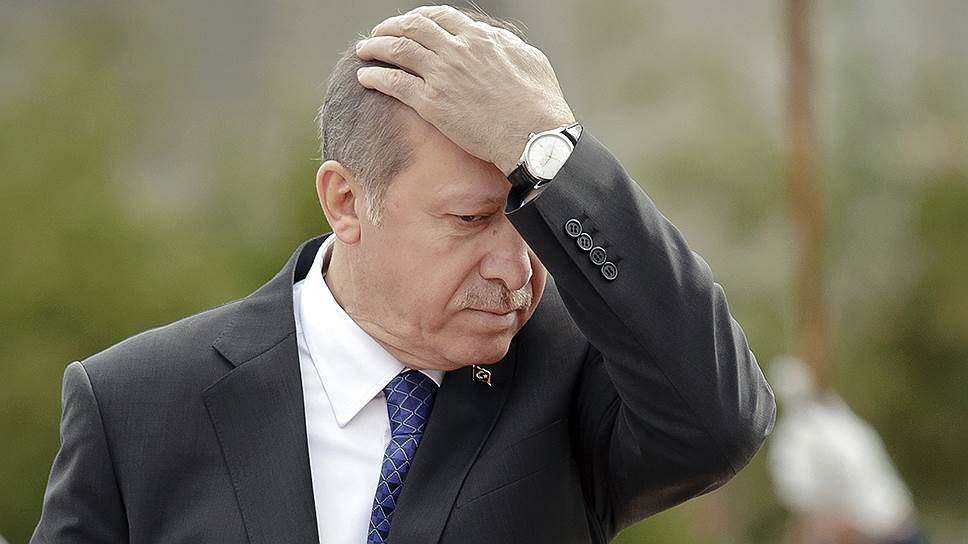 |
| Turkish President Recep Tayyip Erdoğan faces a number of political challenges after local elections. Photo: Getty |
So far, including Istanbul, the AKP has lost control of eight of Türkiye’s 12 major cities. This result is considered an “earthquake” in Turkish politics since the failed coup in 2016. This is also the most serious electoral challenge that President Erdoğan’s AKP has faced in many years.
The result sent a stark warning that the AKP is not “invincible”. Mr Erdoğan has built influence over Turkish politics during his 16 years in power, but this influence is not “forever”.
There are many reasons for the AKP's "loss of power", but Türkiye's tendency to sink deeper into economic recession is clearly the biggest factor that strongly affects the choice of voters in this country. After many years of impressive growth, Turkey has been mired in recession since last year, with unemployment reaching more than 10%. In addition, the lira lost 28% of its value in 2018 and continues to decline. Not only that, in recent months, inflation has reached 20%. Not to mention the constant simmering discontent in society since the failed military coup in 2016. After this coup, Türkiye has always been in a state of emergency. President Erdoğan's government has been criticized for its heavy-handed suppression of the opposition, increased purges and screening of conspirators in the military, and tightening control over the press.
In such a context, the opposition has seized the opportunity to send out hopeful messages during the election campaigns. The newly elected Mayor of Istanbul, Imamoglu, is expected to breathe “new life” into Turkish politics with his calm demeanor and many solutions for change that the people have not seen in a long time. As a new generation politician, Mr. Imamoglu is also considered a potential candidate in the 2023 presidential election.
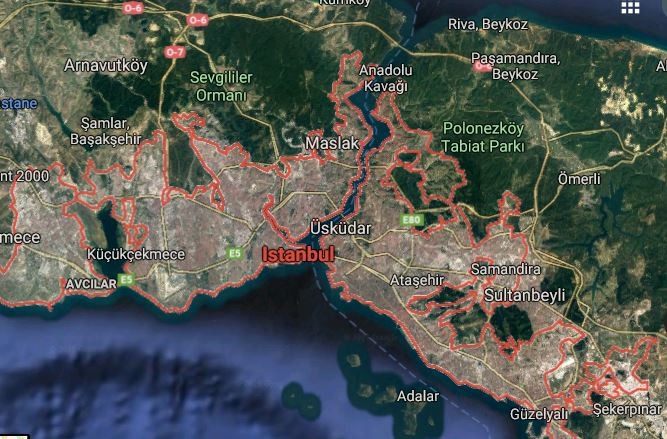 |
| Istanbul. Illustration by Google Maps |
Although it is still too early to predict what will happen next in Turkish politics, the results of the recent local elections with the opposition party winning show that this will be the beginning of a change in the country's politics. In the immediate future, the challenge and burden on President Erdoğan and his party is to find a way to regain the prestige and support of the people. In other words, the recent elections are a warning bell, forcing Erdoğan's government to change from economic policy, security, social security and welfare. Erdoğan will also have to adjust his foreign policy, in the context of tensions with the US leading to Türkiye being subject to economic sanctions. But in any case, Erdoğan will have to compromise more in the context of the "transformation" of the opposition.

